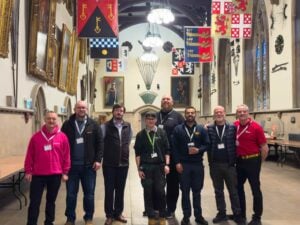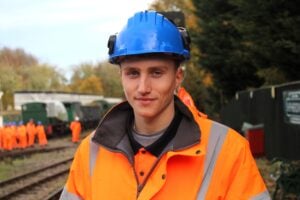Tom Humphreys is a Programme Director for Maths and English at EKC Training. He helps to support learners with their Maths and English skills, ensuring they gain vital qualifications needed for work, life, or future study.
We spoke with him in between Maths lessons at EKC Training Folkestone Centre, located in Westcliff House, to hear more about his background and what his favourite part of the role is.
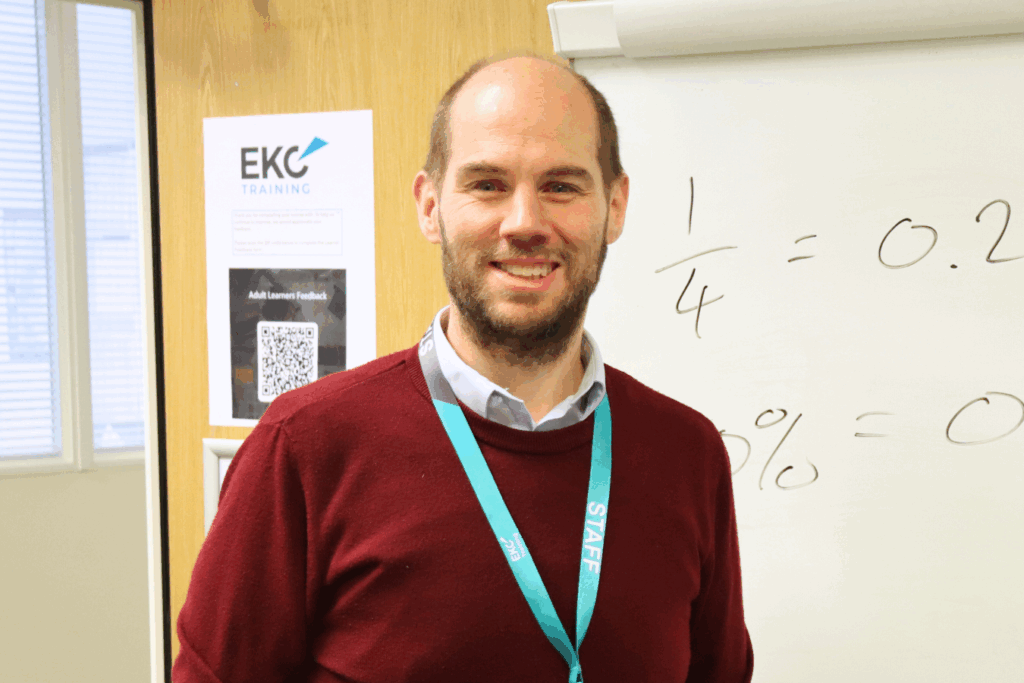
What led to your current role in EKC Training?
I first started teaching in Japan, as I moved there after university and taught English at private language schools.
After 15 years in Japan, I came back to the UK and got a job with East Kent Colleges Group. Initially I was teaching apprentices, who were mainly 16-19, both Maths and English.
I then moved into the adult learning provision, working with the adults directly, and doing what I’m doing today.
How do EKC Training centres help people overcome barriers to learning?
We have a lot of learners who are nervous about coming back to education. We see learners of all different ages. Some have only been a few years out of school, some haven’t been in school for 20 to 30 years.
It’s just about making it as relaxed and as welcoming as possible for them. Especially with Maths, as it’s a subject that a lot of people might have had bad experiences with, not enjoyed at school or not done for such a long time.
They initially come in thinking they’ve forgotten everything, so it’s all about making them feel comfortable and making them aware if you make a few mistakes, you can learn from them.
We try to make learning as relaxed as possible.
What is the environment like and what is the support like?
The environment in the classroom is very relaxed and very friendly.
Everybody helps each other out and everybody’s in the same position, all studying Maths in the centre having started or come back to adult education.
Outside of the classroom, everyone is given access to online learning. We have a platform called BKSB. All learners all given logins to that, so that they can practice at home what they learn in class. We can also give them worksheets to take home.
As a team, we’re always available on email or on a Teams call to talk to our learners outside of the classroom and give them any extra support that they need here. Although they’re only here to learn three hours per week, it’s not just time that we can support them. We’re there all through the week to help and support.
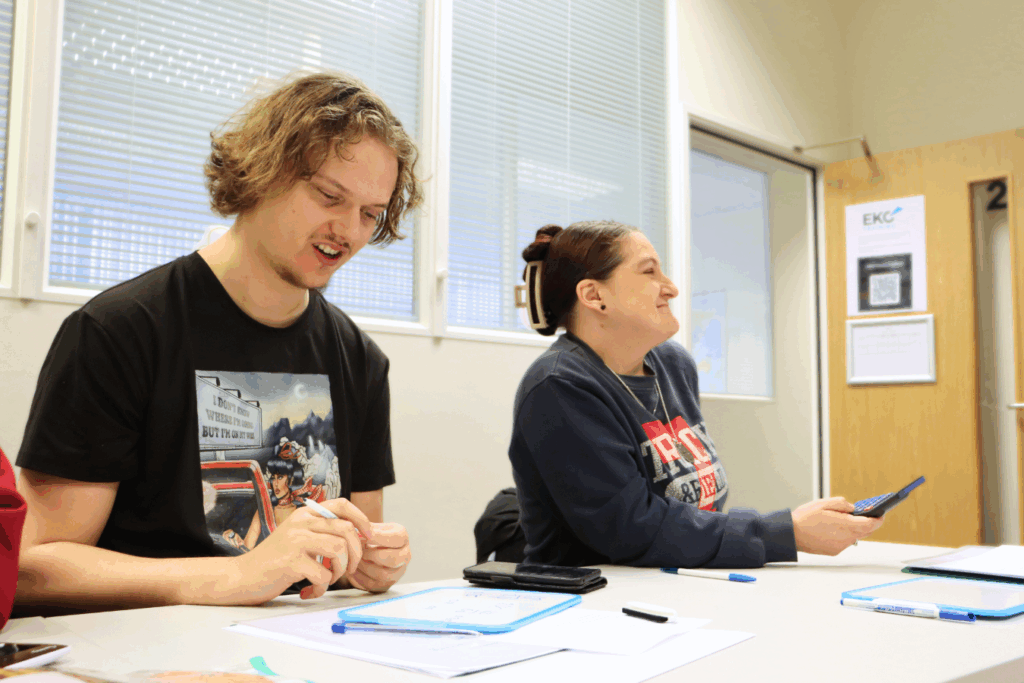
What’s your advice to combining learning as an adult with your personal life?
I would say it’s about studying when you can. We understand that you have a lot going on in your life and here at the centres, you’re not a full-time student. If you don’t have time for your homework, you’re not going to get in trouble, because that’s normal and life can get in the way.
I would recommend finding little bits of time. You don’t have to sit down for two hours at home and study maths. If you can find 10 minutes each day to do a little bit of Maths, that will definitely help.
If someone feels too old to come back to education, what would your advice be?
You’re never too old to learn and it doesn’t matter what age you are. You can always learn and you can always come back to the classroom. Studying with us is not like being in school. It’s not a school environment, it’s a learning environment.
Everyone in the class is also an adult and everyone’s in the same position. Nobody cares about your age. If you want to come and study Maths or study English or study ICT, everybody’s welcome.
We’re here to welcome everybody.
What is the most rewarding part about teaching adults?
I’d say it’s just being able to help people. The same with any teaching, it’s always about helping the learners and helping them improve.
Especially with adults and being mainly a Maths teacher, I know that people may have a negative attitude towards maths. They might come into the classroom with an idea that Maths is difficult and that they don’t like Maths.
Being able to get them to the end of a lesson where they actually realise that they can do this is a great feeling. When they realise that they’re not as bad as maths as they thought there were, and seeing those small changes is the most rewarding part.
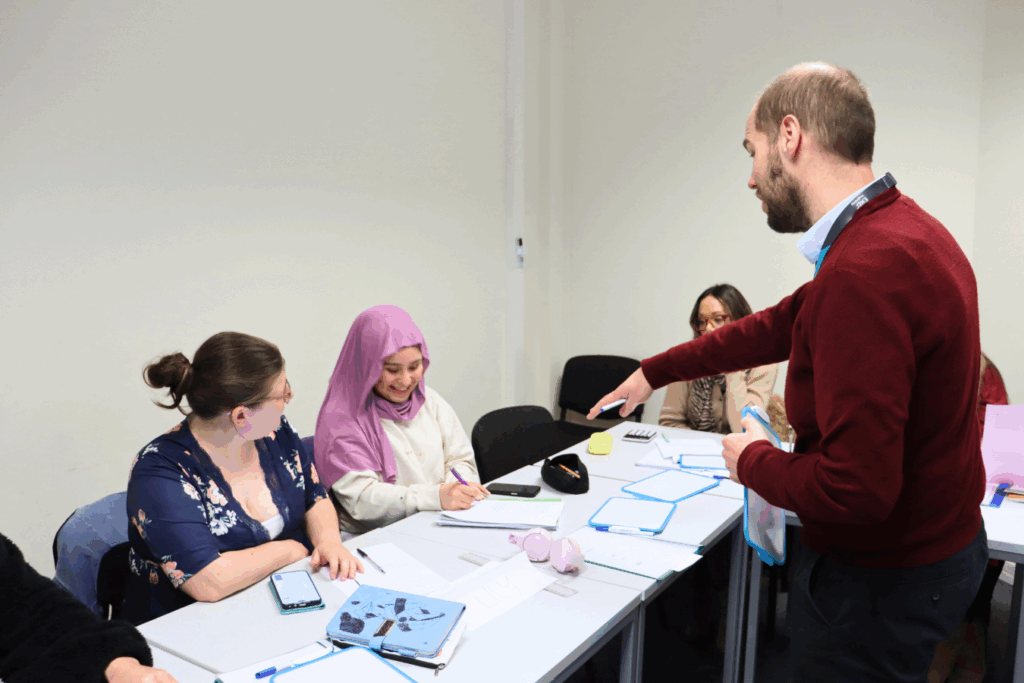
Learn more about the Maths courses that are available to study at EKC Training here, or discover our programmes for adults, available in a wide range of subject areas.
